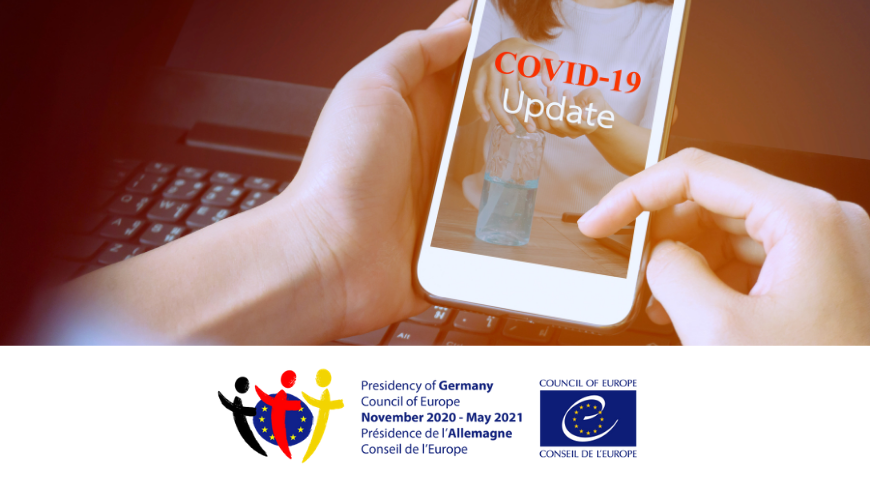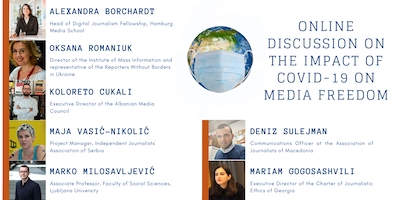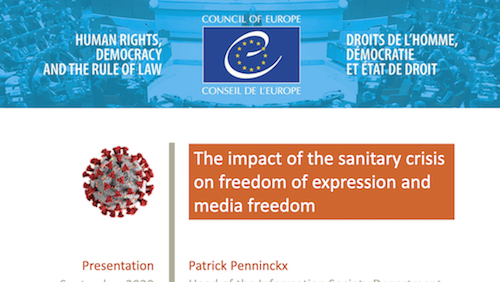During the pandemic, reliable information became critical not only to keep people informed but also safe and healthy. The need for quality, fact-checked journalism has taken on even more relevance in this period. However, the pandemic has also added new concerns to the media sector, already weakened by the fragile financial situation and increasing threats and violence against journalists. The Covid-19 outbreak prompted response measures which included restrictions of access to information and places, claiming sanitary needs. In some countries, legislative initiatives were taken to prevent disinformation and disorder.
Webinar on the impact of Covid-19 on media freedom taking place today from 14.00 to 17.00 (CET) is an event jointly organised by the Federal Ministry of Foreign Affairs, the Federal Government Commissioner for Culture and the Media and the Council of Europe, as part of Germany’s Presidency of the Committee of Ministers of the Council of Europe from November 2020 to May 2021.
The webinar, livestreamed on our webpage, will focus on the human rights standards related to freedom of expression and media freedom which should guide States’ responses to the pandemic. It will provide further insights into the situation of journalists and other media actors on the ground, as well as explore good practices and recommendations for mitigating the impacts of Covid-19 on media freedom and pluralism, and the safety of journalists.








